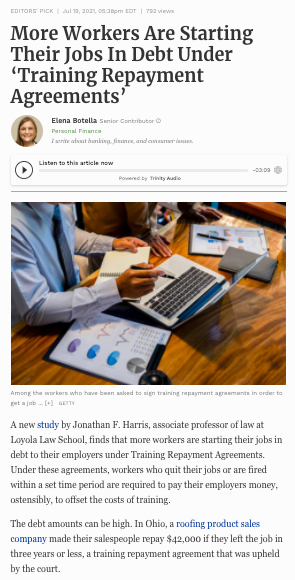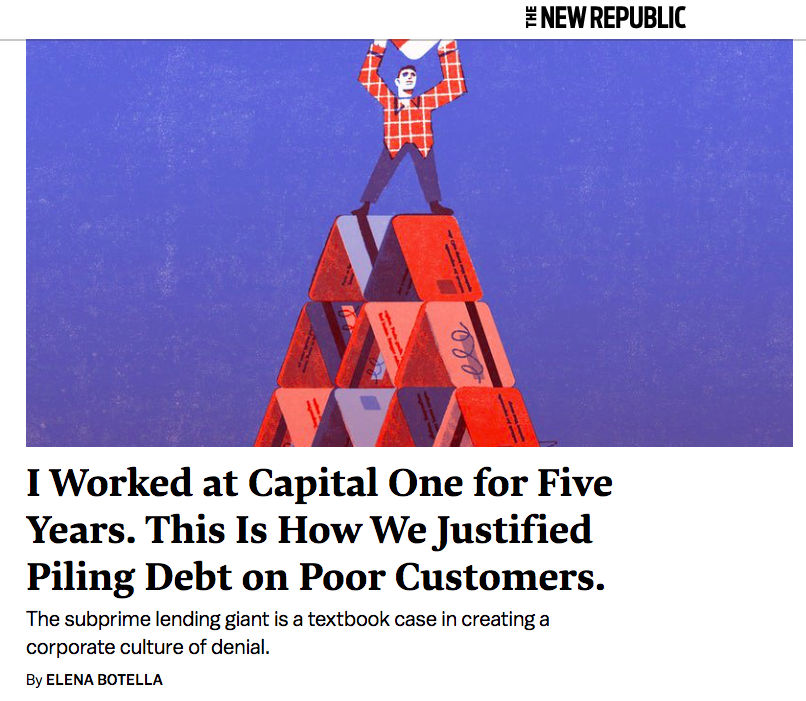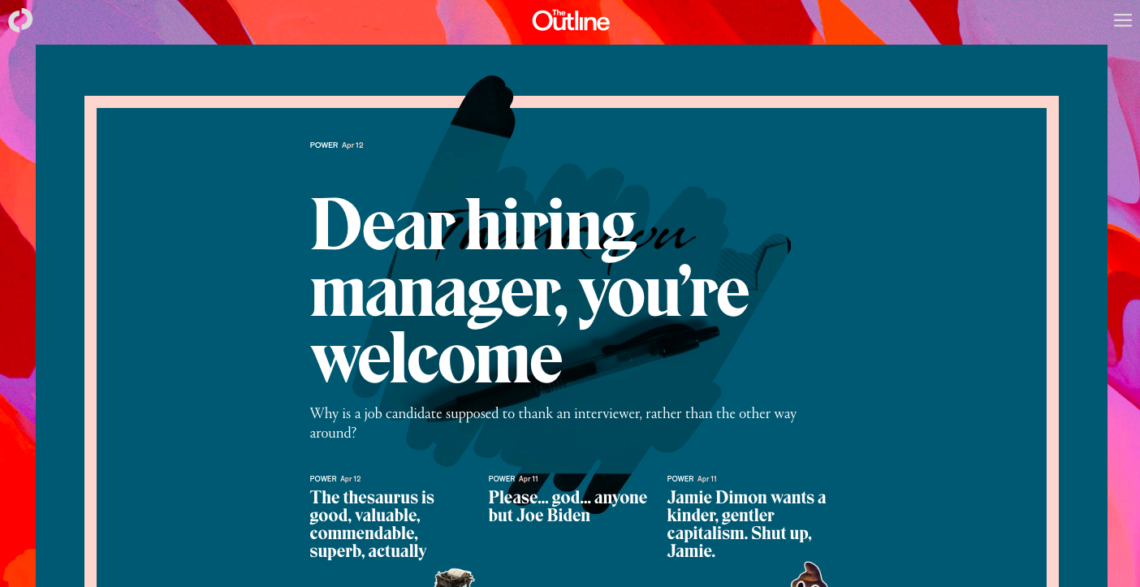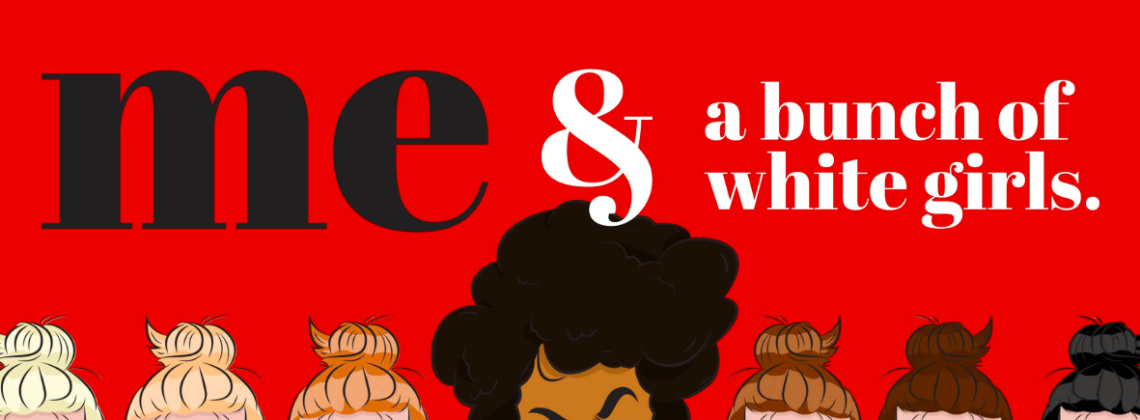For Forbes, I dug into a disturbing trend: workers being asked to sign “Training Repayment Agreements” to repay the (putative, highly inflated, and sometimes completely fabricated) cost of their on-the-job training if they quit or are fired within a set time period. In some cases, the TRAs take 3 years or longer to expire, and can involve $70,000 or more in debt.
-
-
My Advice To People Who Want To Quit Their Jobs
Over the last few days, I have been thinking about the choices that police officers, Facebook employees, and employees of the federal government have made about their employment: whether to quit or to stay. They joined these organizations believing they were harmless, or maybe good, and came to question those assumptions. Speaking about the police specifically, the decisions and statements made by union leaders elected by police officers in Minneapolis, New York, and other cities, make it obvious that the problems in policing don’t boil down to “a few bad apples.” I found the statements of Lt. Bob Kroll, head of the Minneapolis police union, at a Trump rally last…
-
The rich don’t just have more stuff
For The Nation, I interviewed philosopher Jennifer Morton about her new book Moving Up Without Losing Your Way: The Ethical Costs of Upwardly Mobility. Morton explains the rich don’t just have more stuff — capitalism also forces them into fewer dilemmas about whether to prioritize their own interests, or those of their loved ones.
-
The view from glass towers
For The New Republic, I wrote about how euphemism, jargon, and data science all help bankers at places like Capital One distance themselves from their customer’s pain. When I talk about “pain,” here, I mean a few different things. Consumers turn to credit cards because they can’t afford what they want or need: a condition that is intrinsically uncomfortable. In some cases, credit cards may help the consumer a little bit, in other cases, they make the financial instability Americans face even worse: in both cases, that suffering is ignored.
-
Number of Americans Without Health Insurance Increased in 2018
For Slate, I wrote about the growing number of Americans going without health insurance. Immigrant children have been particularly hard-hit by this trend.
-
Get a 20 cent raise; lose your child care
We need to do a better job of supporting parents, whether they’re working, in school, or taking care of children full-time. At the federal minimum wage, paying for child care for one child would take the first 26 hours of wages in a 40 hour week (if it’s an infant, the first 32 hours of wages). All 50 states have some amount of federally-funded assistance to help parents afford child care, but in many states these programs have long wait lists, or have extremely limited eligibility. In Iowa, parents lose all assistance at 145% of the federal poverty line (an income of around $25,000 per year for a parent with…
-
Day 2: What is opportunity?
I’m now on Day 9 in the Twin Cities, by way of Milwaukee, Springfield, St. Louis, South Bend, Chicago, and Cleveland, but this story will talk about Day 2, Detroit. My first stop was the Heidelberg Project, an art installation where Tyree Guyton has used a city block to reflect on time, hope, and community. Guyton grew up on Heidelberg Street, and returned to it as an adult to find vacant lots and a neighborhood where poverty is deepening. Detroit is a city whose population is only 40% of what is was at its peak. There is no way you can drive around Detroit, at least the neighborhoods where I…
-
What a job search custom tells us about the death of free-market egalitarianism
In the Wealth of Nations, Adam Smith imagined a pin factory with ten workers, and predicted that capital owners would be on the factory floor doing manual labor alongside their employees. Instead, Amazon packs thousands of workers into each of its warehouses, and some of those workers reportedly pee into plastic bottles for fear of getting disciplined if they “waste time” on bathroom breaks. Meanwhile, Jeff Bezos is a millionaire, 151,000 times over. In my latest essay for The Outline, I talk about how the custom that job candidates should send thank-you notes to their interviewers fits into a long history of workers being placed socially and culturally beneath management.…
-
“The wealth continues to circulate within white cultures and white groups:” Reflections on diversity and inclusion in banking
In last week’s episode of a Me and a Bunch of White Girls, Laura, a diversity and inclusion consultant, described how her experiences in the financial sector motivated her to tackle D&I work: America has so many problems, and this [lack of diversity] is one of them. We continuously keep these spaces so white. [….] Especially in the financial industry, there’s not enough black and brown people. The wealth continues to circulate within white cultures and white groups. Black and brown people aren’t making it into these spaces to influence where the money flows, or to get the money themselves. Obviously, those who want to dismantle capitalism itself would critique…
-
What’s it like to make it from one rung on the economic ladder to the next?
When we talk about economic mobility (or the lack of it) in the United States, it’s easy to get lost in the statistics — missing what life is like for those who make it from one rung of the economic ladder to the next. As you gain new opportunities, you face new conflicts — in my piece for The Outline, I talked to first-generation college graduates to understand what it’s like to bridge ‘different worlds.’ It goes without saying, but you are probably either a colleague or employer, educator or classmate of those who grew up in very different economic circumstances than you — and to create opportunity, you have…








